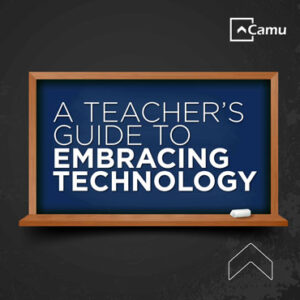
Education and Industry 4.0
The conception of industrial revolution as in history books has gone through sea change, made rapid strides, produced disruptive technologies. Therefore, it is imperative to mark the milestones of industrial revolution and take stock of lessons it offers, and the directions it points to.
Industry 4.0 is generally referred to a highly connected work environment; one in which connections encompass machine-to-machine, machine-to-man, and man-to-man. The general theme is to augment machines with machines to perform routine and non-routine, and perhaps even mission critical tasks. Machinery again is a crude word, primitive and historical perhaps. So, better articulation of Industry 4.0 theme could be about smart technologies. In conversations about the subject, elements often encountered include Internet of Things (IoT), Cyber Physical Systems (CPS), Artificial Intelligence (AI), Cloud Computing, and Cognitive Computing.

In the context of education, the reforms brought forward Industry 4.0 can be noticed predominantly in the form of rising demand for MOOCs; more so in the mushrooming of the e-learning market with new players coming through on a regular basis. This market place swarming is not happening because making content is easy, because content creation and curation can be ridiculously challenging even today as it involves immense human effort. But the secret for this market burst lies in the technology that
- enables integration of content from fragmented spaces
- allows adding experience to content using Augmented Reality and Virtual Reality
- matches learners’ interests with courses offered
- provides value to the learner not just through a certificate, but also by providing a geographically and culturally diverse community of like-minded people to discuss with for continued learning.
In essence, the capacity of technology in engaging the learners has gone through the roof, skywards, in recent times. No wonder then! MOOCs cause the biggest risk for the existence traditional institutions.
The best time for institutions to ponder over questions of how to stay relevant in this turbulence caused by EdTech is now; before Industrial Revolution moves to its next milestone, perhaps Industry 5.0, leaving institutions lagging to cope with change.
In our humble opinion, one way to sync up, with novelties industrial revolution brings through, is to not see EdTech as creating competition, but embrace it and make it part of the institutional setup.
Are there other ways too? We will be keen to learn.
Camu embraces this change in the industry to bring advancements to universities worldwide with our Integrated SIS and LMS system
With the advent of Industry 4.0, data has become a valuable resource in every sector, including education. The use of data analytics in education can help institutions understand student behaviour, improve teaching methods, and enhance student outcomes. It can also aid in personalizing the learning experience for each student, thereby improving engagement and retention. Using an advanced student management system such as Camu Digital Campus would greatly help educational institutions in moving towards Industry 4.0.
Artificial Intelligence (AI) is poised to be a game-changer in the intersection of education and Industry 4.0. AI can personalize the learning experience, tailoring content to accommodate the distinct needs of every student. It can analyze a student’s performance in real-time, identify gaps in understanding, and adapt the curriculum accordingly. Personalizing the learning experience to this extent can contribute to improved academic results and heightened student involvement. Beyond the classroom, AI can streamline administrative tasks, automating processes such as scheduling, grading, and reporting, thereby freeing up educators to focus on teaching. Furthermore, AI can enhance online learning platforms, providing instant feedback, facilitating peer interaction, and even detecting and addressing issues of academic integrity. In fact, a large number of institutions are already using AI-enabled proctoring of online examinations.







